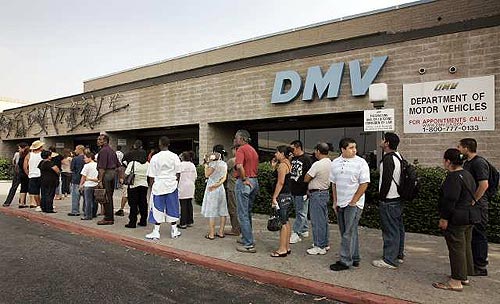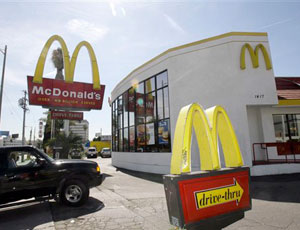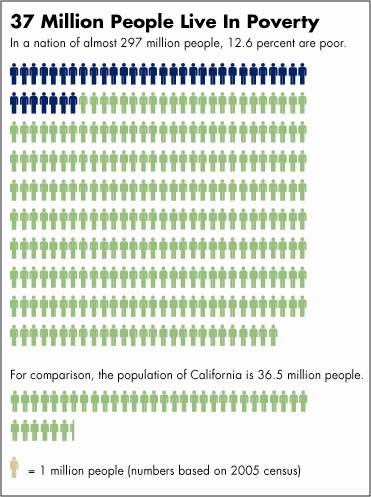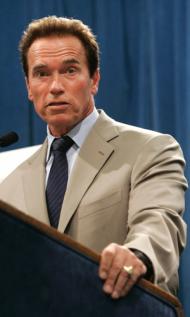You are herehealth
health
Italian shoppers use texting service to check and compare best food prices while at the market

(quote)
The rising cost of food is a growing concern for many people across the world. There have been protests, and even riots, in countries including Mexico, India and Egypt, clear evidence of the struggle that many people are now facing. However, if Italians feel that their local food retailer is charging unreasonable prices, they can now call on a new service to help them haggle or walk away. Thanks to a short message service (SMS) text system set up jointly by the Italian agriculture ministry and consumer associations, shoppers can check the average price of different foods in northern, central and southern Italy.
Italy’s Department of Agriculture, Food & Forestry, along with consumer organisations, have come up with the SMS Consumatori service www.smsconsumatori.it, which tracks prices for over 80 types of fruit, vegetables, meat, dairy products and so on. To use the service, shoppers send a text message to 47947 for free, typing the name of the product they want a price for. They get a reply straightaway listing both a wholesale price and average retail prices in the north, centre and south. If a product comes in varieties, the service sends separate messages for each of the most popular ones.
CA Governor orders pay cuts, lay-offs of state workers; Consequences, at individual level and society as a whole?

(quote)
SACRAMENTO - On Thursday, July 31, California’s Republican Governor Schwarzenegger signed an executive order cutting the pay of up to 200,000 state employees to the federal minimum of $6.55/hour and firing over 10,000 part time and temporary workers until the state’s budget impasse is resolved. The order exempts public safety agencies but will have an immediate effect everywhere else: Hiring, overtime and contracting will be halted, and tens of thousands of employees will feel the squeeze. It covers 22,000 retired state employees who work under contract, temporary and part-time workers such as those who fill in at the Department of Motor Vehicles, seasonal employees and student assistants. The order affects the approximately 10,000 state employees in San Diego and Riverside counties. They work at Department of Motor Vehicles offices, highway offices, state parks and beaches, unemployment offices, fish hatcheries and agriculture inspection stations.
LA bans new fast-food restaurants in poor neighborhoods to battle high obesity rates

(quote)
The Los Angeles City Council has approved a law that bans fast-food restaurants from opening in South LA. People who live in this area have the largest obesity problems. Approximately one in 3 children from South LA is obese, compared to one in five in the rest of the city. Nearly one-third of residents in the city's south are obese, compared with 19% for the overall Los Angeles area and 14% in the wealthier west side area.
The main thing responsible for this condition is poverty, as well as the fact that 73 percent of the restaurants in the southern part of the city are fast-food ones and offer meals that are high in calories and cholesterol. "There's one set of food for one part of the city, another set of food for another part of the city, and it's very stratified that way," Marqueece Harris-Dawson, a community leader in south Los Angeles, told the Washington Post this month.

The new law will ban the opening of any fast-food restaurants for a year, but there is the possibility that this period will be increased to two years. According to the new law, “any establishment which dispenses food for consumption on or off the premises, and which has the following characteristics: a limited menu, items prepared in advance or prepared or heated quickly, no table orders and food served in disposable wrapping or containers" is considered to be a fast-food restaurant. read more »
Deficit zooming to new record of half trillion for fiscal year 2009 - Impact of Iraq War

(quote)
WASHINGTON - The White House predicted yesterday that President Bush would leave a record $482 billion deficit to his successor, a sobering turnabout in the nation's fiscal condition from 2001, when Bush took office after three consecutive years of budget surpluses.
The worst may be yet to come. The deficit announced by Jim Nussle, the White House budget director, does not reflect the full cost of military operations in Iraq and Afghanistan, the potential $50 billion cost of another economic stimulus package, or the possibility of steeper losses in tax revenues if individual income or corporate profits decline.
The new deficit numbers also do not account for any drains on the national treasury that might result from further declines in the housing market. The White House forecast was prepared before passage of the huge housing assistance package that Bush has promised to sign. That legislation would put taxpayer money at risk in numerous ways, especially if housing prices continue to decline.
Pope denounces 'insatiable consumption', urges all faiths to unite against violence, lauds Australia’s apology to Aborigines

(quote)
Pope Benedict XVI recalled the natural beauty he observed during his 20-hour flight to Sydney, saying he felt "a profound sense of awe," and denounced "insatiable consumption" as a threat to the world's environment.
The pope made his first major appearance on his Australia tour Thursday before an estimated crowd of 150,000 people at World Youth Day. The event is believed to be the world's largest Christian gathering and dubbed "the Catholic Woodstock."

He delivered his homily in several languages to people representing 70 countries, lamenting "erosion, deforestation, the squandering of the world's mineral and ocean resources in order to fuel an insatiable consumption." In his address, Benedict warned that mankind's "insatiable consumption" has scarred the Earth and squandered its resources, telling followers that taking care of the planet is vital to humanity — striking a theme that has earned him a reputation as the "green pope." read more »
Most threatened species on earth: one third of world’s coral reefs on verge of extinction due to ocean pollution, over-fishing

(quote)
July 10 (Bloomberg) -- A third of the world's corals could be dead within a few years, a shocking new report warns today. The biggest study of its kind has found that 200 out of 700 species of coral are on the brink of extinction - far more than was previously thought. If they die, some of the most beautiful and colourful reefs - home to millions of species of marine life - could be devastated. The speed of decline has shocked the 39 scientists who carried out the survey. Just 10 years ago only 13 species of coral were endangered. Researchers, who published their findings in the journal Science, say they have been badly hit by climate change, coastal development and overfishing.
A team of 39 researchers assessed the state of 704 coral species and found 32.8 percent are threatened with extinction. The study results, published today in the journal Science, are "worse than expected," said co-author Suzanne Livingstone, a marine biologist at Old Dominion University in Norfolk, Virginia. "When we began this process, we didn't think it would be anywhere near as high as that," Livingstone, also a marine species assessor for the International Union for Conservation of Nature, said yesterday in a telephone interview. "Climate change is the overarching threat which comes in on a much larger, global scale," adding to localized disturbances, she said. Death of corals can lead to the collapse of entire ecosystems.
"These truths to be self-evident, that all men are created equal". $656 bil. for Iraq War? or for 37 mil. Americans in poverty?

(quote)
Today marks the birth of a notion as well as a nation
July 4, 2008
By Jerry Davich Post-Tribune metro columnist
"We hold these truths to be self-evident, that all men are created equal, that they are endowed by their Creator with certain unalienable rights, that among these are life, liberty and the pursuit of happiness."
When in the course of human events, it becomes necessary for a pampered, privileged, and not-so-patriotic newspaper columnist to finally take the time to read his nation's most hallowed document, it must seem like a sad state of affairs, I agree. Yet here I am, a 46-year-old Yankee Doodle Davich who not once has read every word in the Declaration of Independence, arguably the most masterfully written political prose of Western civilization. Oh, sure, I can be a patriotic pretender and regurgitate its revolutionary highlights, such as "self-evident truths," "unalienable rights," and "all men are created equal." But what does that all mean in 2008, in a country that went from 2.5 million people in 1776 to 305 million today, with who knows how many here illegally or what that really means?

In a country that riveted its global identity to become the economic leader, only to predictably lose that title to China. Or which has so far allocated $656 billion for the war in Iraq while millions of Americans go without food, health care, and proper education. And a country which only recently experienced its first "mountaintop moment" regarding civil rights, and possibly the not-so-self-evident truth that all men are created equal.
On June 28, 1776, Thomas Jefferson finished drafting the first version of the Declaration of Independence. On June 28, 2008, I began studying the final version in earnest. On July 4, 1776, the Continental Congress adopted the document, and it later served as an autographed preamble for the birth of a nation. On July 4, 2008, I'd like to use this space as a preamble for the birth of a notion: Between the cookouts, parades, and fireworks, how about we pause to reflect how the Declaration has stood the test of time. And what better time, on the nation's 232nd birthday, to spark a conversation of sovereign thought among free people.
What would they think?
I can't help but wonder what our founding fathers would think of America the Bountiful in the 21st century, in all its hope and hype, gore and glory, fakeness and flag-waving.

Would they condemn, condone, or celebrate a racially mixed presidential candidate? Or a middle-aged woman for that matter? Would they embrace or be aghast over the proliferation of guns? Or the recent Supreme Court ruling on the right to bear arms? Would they be surprised or surly over our global trade agreements with other countries, including the $107 billion of trade each year with the United Kingdom, our adversary in 1776, but our sixth-leading trading partner today? These are the questions I asked myself while reading the Declaration and its 56-signature endorsement.
Also, it seems our founding framers' clear, concise, and candid public declaration in 1776 has been replaced by red, white and often untrue political decoration in 2008, an election year. Rhetoric has replaced reasoning. Sound-bites have replaced sound thinking. Image has replaced imagination. Maybe my star-spangled skepticism seems un-American, but I feel there's a thin line between how we praise a "patriot" versus how we torment a "traitor."
Isn't it still our duty to be the watchdog of government, to secure our life, liberty, and pursuit of happiness, and if necessary to indict our leaders, just as the Declaration indicted King George III? Isn't it our duty to question whether our personal freedoms are being protected, protracted, or politically pawned away? Isn't it our duty to reconsider exactly what defines our so-called unalienable rights? Two centuries later, does the term still adhere to our basic human rights, or do we view them as more national than natural?

Who's a patriot today?
And where does the "Creator" still fit into this 232-year-old marriage between church and state? A recent poll showed an overwhelming majority of Americans are "absolutely certain" that God exists, but many of them don't believe in worshipping on a regular basis. Is there a parallel with those same Americans who genuinely believe in democracy but are not absolutely certain about our government?
And what defines a patriot these days, "a person who loves, supports, and defends his or her country and its interests with devotion," according to my dictionary. Or someone who must symbolically wear an American flag pin to prove it?
On the morning of July 4, 1776, church bells rang out when the Declaration was finally, and formally, adopted. But, I discovered, two statesmen ended up not signing it. John Dickinson clung to the idea of reconciliation with Britain, and Robert R. Livingston thought the Declaration was premature. Today I can only wonder about all the statesmen in 21st century America who would have joined Dickinson and Livingston, refusing to put their necks on the line for the birth of a notion, and a nation.
(unquote)
Images courtesy of Getty Images and Center for American Progress, and paintings by Gilbert Stuart and Arnold Friberg
Original Source: Post-Tribune and Center for American Progress






















